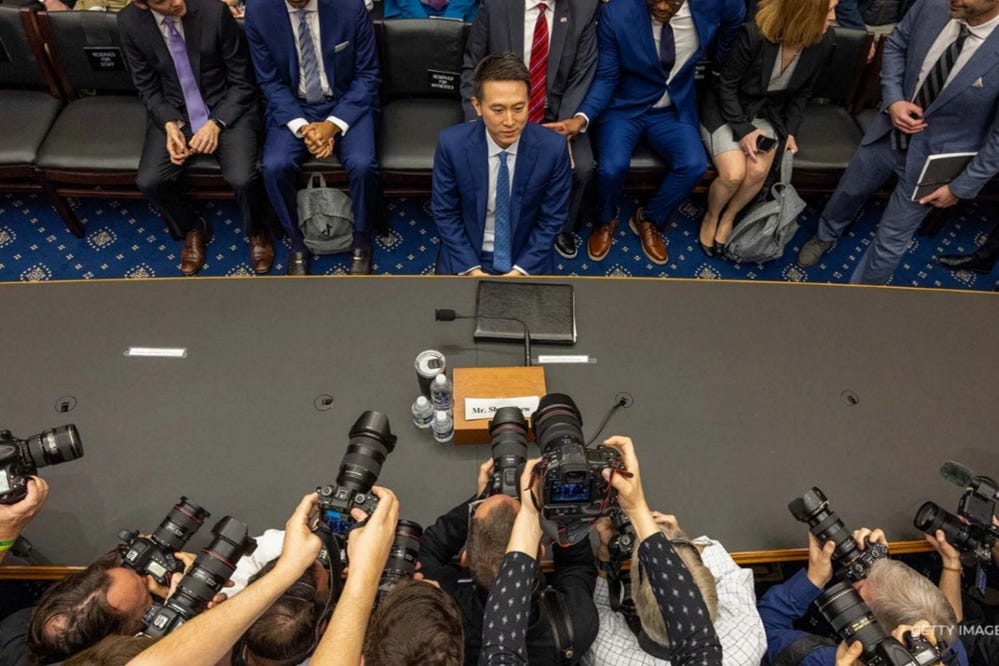Pointless Grandstanding (#373)
Last week, I watched a summary of the coverage of the recent TikTok hearings held by the United States Congress featuring TikTok’s CEO Shou Zi Chew. Though my expectations were low, I felt a deep sense of disappointment and even disgust as I watched, and I suspect I wasn’t the only one.
This is not about political ideology; scrutiny of TikTok, at least a…
Keep reading with a 7-day free trial
Subscribe to Friday Forward to keep reading this post and get 7 days of free access to the full post archives.



